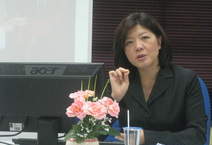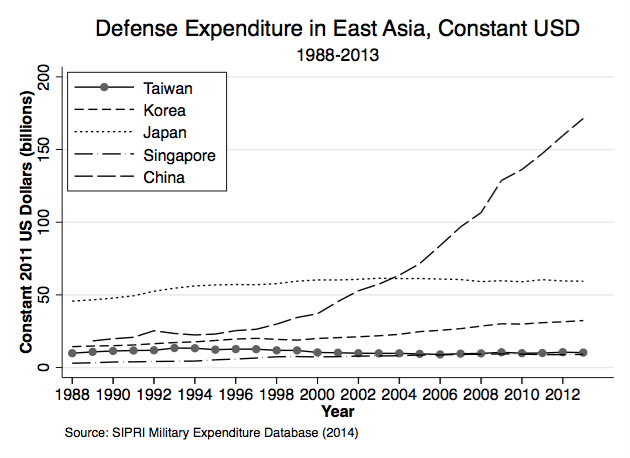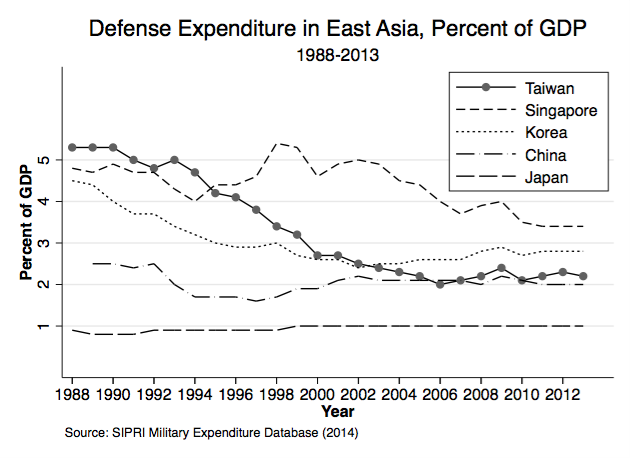The Taiwan Fellowship provides funding for one round-trip airfare and a monthly stipend of up to NT $60,000 (about US $2000). Applications are now open and will be accepted from May 1 to June 30, 2015. Details about how to apply are at the main website, here.
|
Taiwan's Ministry of Foreign Affairs is now accepting applications for the Taiwan Fellowship, awarded to scholars to conduct research at Taiwanese academic institutions for 3 to 12 months in 2016 in areas related to Taiwan studies, Cross-Strait relations studies, Asia-Pacific studies, or the Trans-Pacific Partnership and economic integration. The fellowship is open to foreign (non-Republic of China) nationals holding academic positions at the full, associate, or assistant professor level, post-doctoral researchers, doctoral candidates, or doctoral program students, or research fellows at the equivalent level in academic institutions abroad.
The Taiwan Fellowship provides funding for one round-trip airfare and a monthly stipend of up to NT $60,000 (about US $2000). Applications are now open and will be accepted from May 1 to June 30, 2015. Details about how to apply are at the main website, here.
0 Comments
I'm speaking on trends in Taiwan's defense spending on May 19th as part of the Taiwan Democracy Project Speaker Series. The official event page is here. The talk is motivated by the trends in the figures above: Taiwan's defense spending has dropped as China's has risen. To IR theorists, that should look weird. To policy wonks, it should be alarming. In the talk I will try to explain why it's happened. Why Taiwan's Defense Spending Has Declined as China's Has Risen
Over the past 20 years, the military balance between the People’s Republic of China and Taiwan has rapidly shifted. As China’s defense budget has grown annually at double-digit rates, Taiwan’s has shrunk. These trends are puzzling, because China’s rise as a military power poses a serious threat to Taiwan’s security. Existing theories suggest that states will choose one of three strategies when faced with an external threat: bargaining, arming, or allying. Yet for most of this period, Taiwan’s leaders have done none of these things. In this talk, I explain this apparent paradox as a consequence of Taiwan’s transition to democracy. Democracy has worked in three distinct ways to constrain rises in defense spending: by intensifying popular demands for non-defense spending, introducing additional veto players into the political system, and increasing the incentives of political elites to shift Taiwan’s security burden onto its primary ally, the United States. Together, these domestic political factors have driven a net decline in defense spending despite the rising threat posed by China’s rapid military modernization program. Put simply, in Taiwan the democratization effect has swamped the external threat effect.  Doing some catching up here...on April 19th we hosted Julia Huang for a talk on the Buddhist charity organization Tzu-chi (慈濟). Dr. Huang is currently a visiting scholar at the Ho Center for Buddhist Studies at Stanford University, and a Professor of Anthropology at National Tsing Hua University, Taiwan. She has published articles in the Journal of Asian Studies, Ethnology, Positions, Nova Religio, the Eastern Buddhist, and the European Journal for East Asian Studies. Her book, Charisma and Compassion: Cheng Yen and the Buddhist Tzu Chi Movement (Harvard University Press, 2009) is an ethnography of a lay Buddhist movement that began as a tiny group in Taiwan and grew into an organization with ten million members worldwide. Huang has recently completed a book manuscript, The Social Life of Goodness: Religious Philanthropy in Chinese Societies (with Robert P. Weller and Keping Wu). She is currently working on a project on the Buddhist influences on cadaver donations for medical education in Taiwan. The End(s) of Compassion?: Buddhist Charity and the State in Taiwan
The Buddhist Compassion Relief Tzu Chi (Ciji) Foundation from Taiwan is perhaps one of the largest Buddhist charities in the Chinese world today. This talk traces how Tzu Chi developed under the “regime of civility” in Taiwan. The same regime also contributed to the recent controversies between Tzu Chi and the Aborigines. I argue that the tension between the Buddhist non-governmental organization and the Christian Aborigines has to do with the inequality under the regime of civility: on the one hand, the Aborigines have been marginalized as the “subject” of the civility campaign by the state; and, on the other hand, the same regime of civility is what allows the Buddhist charity to thrive in civil society. This talk raises the question whether civility could turn against civil society. |
About MeI am a political scientist with research interests in democratization, elections and election management, parties and party system development, one-party dominance, and the links between domestic politics and external security issues. My regional expertise is in East Asia, with special focus on Taiwan. Archives
January 2024
Categories
All
|



 RSS Feed
RSS Feed
